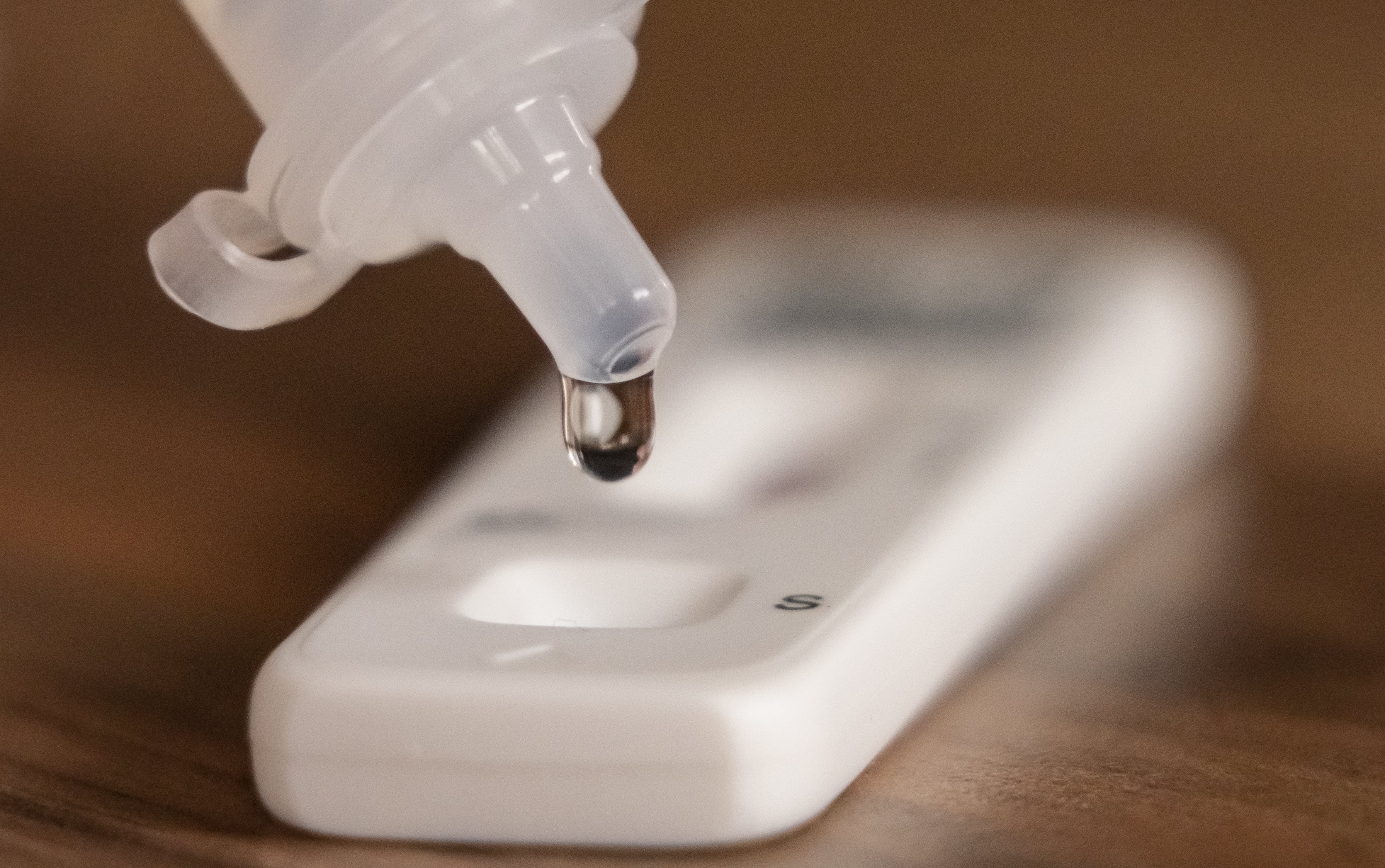Where can I get a lateral flow test now that free tests are unavailable?
Everything you need to know about testing for Covid from 1 April

The government has ended free universal Covid testing in England, which means that you can no longer get a free lateral flow test unless you are eligible.
Prime minister Boris Johnson laid out his “Living with Covid” plan earlier this year, announcing that the government must “scale back” the UK’s testing programme as it “came at a vast cost”.
The testing, tracing and isolation budget cost more than £15.7 billion in 2021/22, the Department of Health and Social Care said, adding that testing can be reduced thanks to the high levels of protection through vaccination and antiviral medication.
So where can you get a lateral flow test? And are you eligible to get a free one?
Can I still get free tests?
The vast majority of people in England will no longer be eligible for free Covid-19 tests from 1 April, although there are a very limited number of people who can still get them.
Groups of people who are still eligible for free tests include some hospital patients, some people at high risk of severe Covid, and some individuals who live or work in “high risk settings”, such as care homes and prisons.
However, these groups are only eligible for the tests if they have symptoms.
Only health and social care staff will be able to access free tests without any symptoms due to the nature of their jobs.
What is the testing programme for people living in care homes and hospices?
Routine tests for for care homes and hospice residents will be discontinued and will only be provided in the event of an outbreak or if a resident is being admitted.
Should I stop testing completely?
Ministers have said that most people no longer need to take lateral flow tests, including visitors to hospitals and care homes.
However, if you wish to continue taking regular lateral flow tests, you will have to buy them. Prices vary, but usually start at around £2.
The tests will be available to buy in pharmacies across the country, with most major high street pharmacies offering them both online and in-store.
Boots sells a single test for £2 or a pack of five for £9.80, while a single test at Lloyds pharmacy costs £1.89 and a pack of five costs £9.29.
Superdrug is offering single tests for £1.99, and packs of five for £9.79.
What do I do if I get Covid?
DHSC has said that people who test positive for Covid-19 will be advised to try and stay at home and avoid contact with other people for five days.
If you get a positive test, or have symptoms, but you need to leave your house, you will be urged to wear a mask, avoid crowded places and stay away from people with weakened immune systems.
As for children, the government advises that children and young people who are unwell and have a high temperature should “stay at home and avoid contact with other people, where they can”.
They will be allowed to return to school, college or childcare when they no longer have a high temperature and are well enough to attend.
What happens if there is a sudden wave of a new variant that is more deadly?
Ministers have reserved the right to stand up testing capacity again in the event of a new variant. This includes keeping a stockpile of lateral flow tests.
How do people feel about the end of free testing?
Many people are worried about the reduction in testing.
The government chief scientific adviser Sir Patrick Vallance told MPs on Wednesday that it could lead to a “decrease in precautionary behaviours”, which could drive up transmission of the virus.
He told the Science and Technology Committee of MPs: “Testing in effect does three things: it is very important for surveillance; it enables precautionary behaviour and it’s useful to protect those who are most vulnerable.”
Some charities representing people at risk of Covid have raised concerns about taking away frequent testing for vulnerable people without symptoms. They said that testing has become a way which has enabled some people to return to their normal lives, despite being concerned about the virus.
Meanwhile, hundreds of thousands of people have signed a petition calling on the Government to reinstate free tests.
Additional reporting by PA
Join our commenting forum
Join thought-provoking conversations, follow other Independent readers and see their replies
Comments
Bookmark popover
Removed from bookmarks